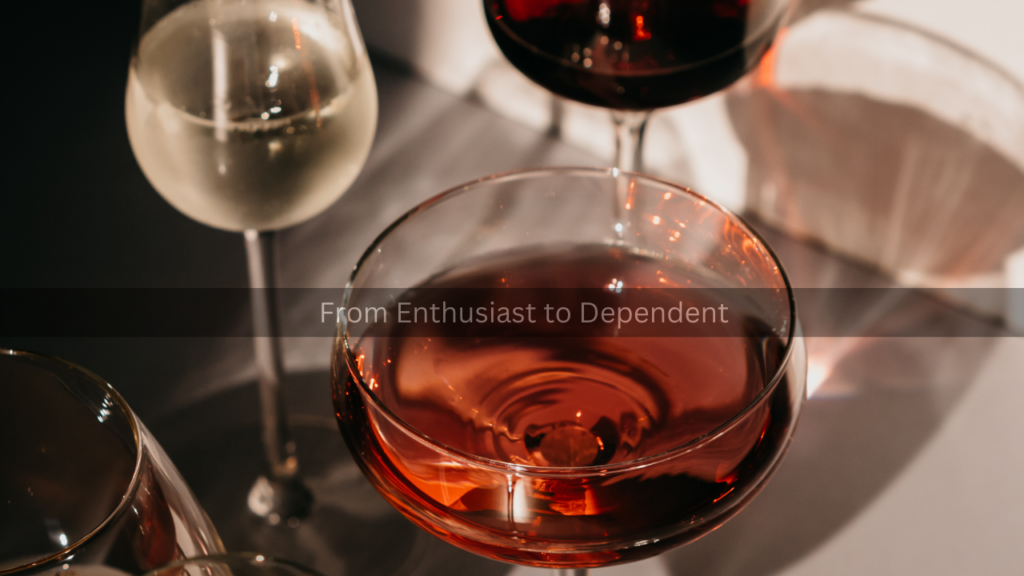
Wine connoisseurship is often celebrated as a refined hobby, a pursuit that reveals the nuances of culture, history, and craftsmanship. Enthusiasts savor the complexity of flavors, appreciate the artistry of winemaking, and take pleasure in sharing their knowledge. However, for some, this passion can tip into dependency, where the enjoyment of wine shifts from a sophisticated pastime to a problematic compulsion. Understanding this transition requires a closer look at the delicate boundary between genuine appreciation and unhealthy reliance.
The Allure of Connoisseurship
Wine connoisseurship is more than a hobby; it’s a journey into the depths of oenology. Enthusiasts spend years learning about varietals, tasting profiles, and vineyard regions. They invest in rare bottles, visit wineries, and engage in detailed discussions about wine. This level of involvement can enrich one’s life, offering social engagement and a sense of accomplishment.
The allure lies in the sensory experience and the intellectual challenge. Wine, with its intricate flavors and aromas, provides a canvas for discovery. The complexity of a vintage and the story behind each bottle add layers of meaning to the experience. For many, the pursuit is a fulfilling and enriching aspect of their lives.
When Passion Becomes a Problem
The line between connoisseurship and dependency can be subtle and often blurred. It starts when the hobby begins to overshadow other aspects of life. While initially engaging, the obsession with acquiring rare wines, attending events, or perfecting tasting notes can lead to increased time and financial investments. The shift from moderation to excess is gradual and may not be immediately noticeable.
Dependency manifests in several ways. Increased tolerance, where more wine is needed to achieve the same level of satisfaction, is a key indicator. This can lead to habitual drinking, where wine is consumed not just for pleasure but as a coping mechanism for stress or emotional challenges. The social aspect of wine connoisseurship might shift from a shared experience to a solitary one, where wine consumption becomes a personal retreat from life’s pressures.
Recognizing the Signs
Identifying when connoisseurship becomes dependency involves observing behavioral changes. If wine tasting becomes a daily necessity rather than an occasional delight, it may indicate a shift. Additionally, if wine consumption starts interfering with daily responsibilities or relationships, it signals a problem. Financial strain from excessive spending on wine or the prioritization of wine-related activities over other commitments can also be warning signs.
Finding Balance
Maintaining a healthy relationship with wine involves self-awareness and balance. Setting limits on consumption and ensuring that wine remains a part of a diverse range of interests can help. Engaging in other hobbies and nurturing social connections outside of wine-related activities are crucial for maintaining a balanced lifestyle.
For those who find themselves struggling with dependence, seeking professional help is essential. Therapy and support groups can provide valuable assistance in addressing the underlying issues and developing healthier coping strategies. Recognizing the signs early and addressing them proactively can prevent a passionate interest from becoming a detrimental dependency.
Conclusion
Wine connoisseurship, when practiced in moderation, can be a deeply rewarding pursuit. However, the journey from enthusiast to dependent is a risk for those who are not mindful of the fine line between appreciation and overindulgence. By staying attuned to one’s behavior and maintaining a balanced approach, it is possible to enjoy the richness of wine without falling into the traps of dependence.